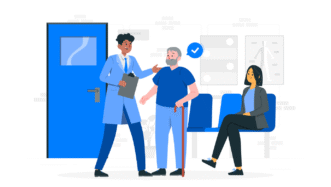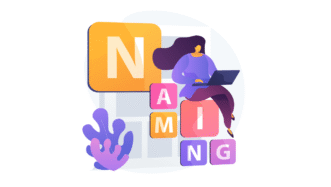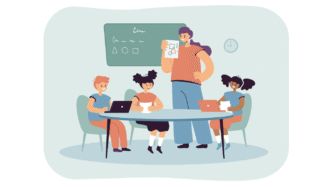LESSON OVERVIEW
The main objectives of this advanced lesson on humour are to:
- talk about humour from various perspectives;
- watch a video of a humorous description of a London day;
- learn and practise rhetorical devices to be funny.
With this lesson, students discuss British comedy and humour in their own culture, watch a video where the speaker humorously describes a typical London day and examine the speaker’s vocabulary. Students explore what makes jokes funny, work with rhetorical devices (hyperbole, oxymoron, irony and understatement) and analyse funny quotes. They also talk about types of humour in different situations and share a humorous version of their typical day.
C2 / Proficiency60 minStandard LessonPremium Plan
WARM-UP AND VIDEO
This advanced lesson on humour begins with a warm-up. Students read statements about humour (e.g. Nothing beats humour as an outlet for serious topics.) and say if there is one they particularly agree or disagree with. They also give reasons. Afterwards, students discuss questions about British humour and cultural differences. They then watch a video in which the speaker humorously describes a typical London day. Students watch the video and make notes on things the speaker says about different parts of the day (e.g. breakfast tea, commuting, lunch). Following that, they watch the video again and replace words and phrases with those the speaker uses (e.g. just to create – for the sake of).
RHETORICAL DEVICES AND DISCUSSION
At this point in this advanced lesson on humour, students talk about what makes jokes funny. Afterwards, they read jokes and discuss whether they find them funny. Then, students say which rhetorical devices (hyperbole, oxymoron, irony and understatement) are used in each joke. Following that, students explain the meaning of quotes (e.g. “I am a deeply superficial person.” – Andy Warhol) and discuss how a comedic effect is achieved in each. After that, they discuss types of humour (e.g. hyperbolic reaction, sarcastic comment, understatement) in different situations using ideas from the task (e.g. The type of humour that you usually find less enjoyable.). Students add details. Next, they talk about their typical day in a humorous way, using rhetorical devices from the lesson
HOMEWORK/REVISION
This lesson plan also includes an additional task that you can use as homework or revision. In the task, students complete jokes using a different rhetorical device in each of them. The task is available in the teacher’s version of the worksheet. You can print it and hand it out to your students. It’s also included in the e-lesson plan.
WORKSHEETS
Subscribe to unlock these and many other Standalone lesson with the Premium plan
Subscribe











I loved the lesson! I found this video, which is a really good extra resource https://youtu.be/vkL78BxZ50I related to the lesson.
We are so happy you liked the lesson! Thank you so much for sharing this video – we’ll definitely check it out!